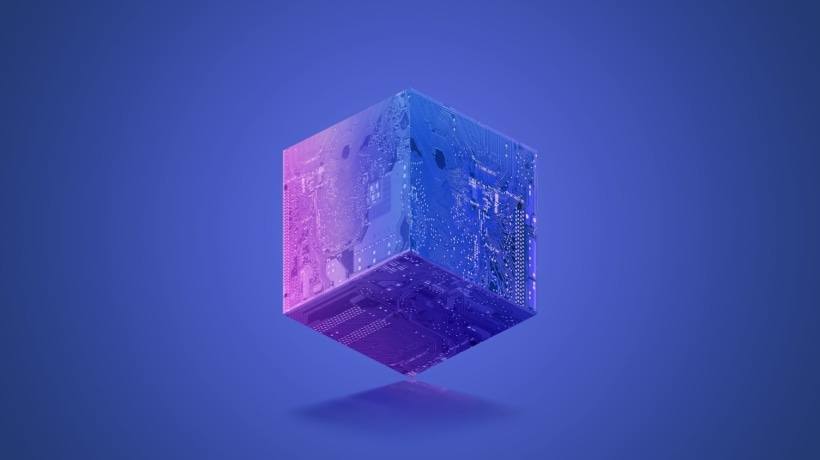The Potential Of Blockchain For Education
Blockchain technology, initially developed as the underlying structure for cryptocurrencies like Bitcoin, is making significant inroads into various industries, including education. Its ability to provide secure, transparent, and decentralized recordkeeping makes it an ideal solution for addressing many of the challenges faced by educational institutions today. This article explores how blockchain is transforming the education industry, highlighting its key applications, benefits, and future potential. Additionally, we will discuss how educational app development services are leveraging blockchain to enhance their offerings and why it’s crucial for developers looking to create an eLearning app to consider integrating blockchain technology.
Understanding Blockchain Technology
Before delving into its applications in education, it’s essential to understand blockchain technology. Blockchain is a decentralized digital ledger that records transactions across multiple computers in such a way that registered transactions cannot be altered retroactively. This ensures transparency and security, as every participant in the network has access to the same information, and any attempt to alter a record would require consensus from the majority of the network.
Key Applications Of Blockchain In Education
1. Secure And Verifiable Academic Records
One of the most significant applications of blockchain in education is the creation and maintenance of secure and verifiable academic records. Traditional methods of storing academic credentials are often susceptible to fraud and loss. Blockchain can address these issues by providing a tamper-proof system for recording and verifying academic achievements.
- Example
The University of Nicosia in Cyprus was one of the first institutions to issue diplomas using blockchain technology. This ensures that the diplomas are secure, easily verifiable, and tamper-proof.
2. Enhanced Credential Verification
Blockchain technology simplifies the process of verifying educational credentials. Employers, educational institutions, and other stakeholders can quickly and easily verify the authenticity of a candidate's academic records without the need for intermediaries.
- Example
A well-known company and MIT collaborated to develop a blockchain-based system for issuing digital diplomas. This allows graduates to share their credentials with employers directly, reducing the time and effort involved in verification.
3. Decentralized Learning Platforms
Blockchain can facilitate the creation of decentralized learning platforms where content creators, educators, and learners can interact directly without the need for centralized control. These platforms ensure fair compensation for content creators and provide learners with a wider range of educational resources.
- Example
Blockchain technology can be used to develop decentralized education platforms, which connect students, educators, and employers on a single platform, offering transparency and efficiency in educational transactions.
4. Smart Contracts For Course Management
Smart contracts are self-executing contracts with the terms of the agreement directly written into code. In education, smart contracts can be used to automate various administrative tasks, such as enrollment, fee payments, and course completion certificates.
- Example
A university could use smart contracts to automate the issuance of certificates once a student completes a course and meets all the requirements. This reduces administrative overhead and ensures timely issuance of credentials.
5. Intellectual Property Protection
Blockchain can protect intellectual property by providing a secure and transparent way to record the creation and distribution of educational content. This can help educators and content creators safeguard their work and ensure they receive proper credit and compensation.
- Example
Educators can use blockchain to register their educational content, ensuring that their intellectual property rights are protected and that they receive royalties whenever their content is used or distributed.
Benefits Of Blockchain In Education
Enhanced Security
Blockchain’s decentralized nature and cryptographic security features make it an ideal solution for protecting sensitive educational data. Academic records, credentials, and other important documents can be securely stored and accessed, reducing the risk of data breaches and fraud.
Transparency And Trust
Blockchain’s transparent ledger system fosters trust among stakeholders by providing a clear and immutable record of transactions. This transparency is particularly beneficial in the context of credential verification, where trust in the authenticity of records is paramount.
Efficiency And Cost Savings
By automating administrative processes through smart contracts and reducing the need for intermediaries in credential verification, blockchain can streamline operations and reduce costs for educational institutions.
Empowering Learners
Blockchain technology empowers learners by giving them control over their educational records. Students can own and share their credentials as needed, enhancing their mobility and employability in a global job market.
How Education App Development Services Are Leveraging Blockchain
Educational app development services are increasingly incorporating blockchain technology to enhance their offerings and provide more robust solutions to their clients. Here are some ways they are doing this:
1. Integrating Secure Credentialing Systems
Educational app development services are integrating blockchain-based credentialing systems into their apps to provide secure, verifiable, and easily shareable academic records. This feature is particularly valuable for eLearning platforms that issue certificates and diplomas.
2. Developing Decentralized Learning Platforms
Developers are leveraging blockchain to create decentralized learning platforms that connect educators and learners directly. These platforms provide greater access to educational resources and ensure fair compensation for content creators.
3. Implementing Smart Contracts For Automation
Smart contracts are being used to automate various administrative tasks within educational apps, such as course enrollment, fee payments, and issuance of certificates. This automation reduces administrative overhead and ensures a smooth User Experience.
4. Enhancing Data Security
Blockchain’s robust security features are being utilized to protect sensitive educational data within apps. This includes storing academic records, personal information, and payment details securely on the blockchain.
Challenges And Considerations
While blockchain offers numerous benefits for the education industry, there are also challenges and considerations to keep in mind:
Technical Complexity
Implementing blockchain technology requires a high level of technical expertise. Educational institutions and developers must invest in the necessary skills and infrastructure to effectively utilize blockchain.
Regulatory Compliance
Educational institutions must ensure that their use of blockchain complies with relevant regulations and data protection laws. This includes ensuring that student data is handled in accordance with privacy regulations like GDPR.
Adoption And Integration
Widespread adoption of blockchain in education will require significant changes to existing systems and processes. Institutions must be willing to invest in the necessary changes and educate stakeholders on the benefits and use of blockchain.
Future Potential Of Blockchain In Education
The potential for blockchain and AI in the education industry is vast, and as technology matures, its applications will likely expand. Here are some future trends to watch:
Global Credentialing Networks
Blockchain could enable the creation of global credentialing networks where academic records are universally recognized and verifiable. This would facilitate international student mobility and simplify the process of credential recognition across borders.
Lifelong Learning Records
Blockchain can support lifelong learning by providing a secure and permanent record of an individual’s educational achievements throughout their life. This would include formal education, professional development, and informal learning experiences.
Enhanced Collaboration And Resource Sharing
Blockchain can facilitate greater collaboration and resource sharing among educational institutions. By creating a transparent and secure platform for sharing educational resources and research, blockchain can enhance the quality and accessibility of education globally.
Conclusion
Blockchain technology is transforming the education industry by providing secure, transparent, and efficient solutions for credentialing, course management, and intellectual property protection. As educational institutions and developers continue to explore and implement blockchain applications, the potential for innovation and improvement in the education sector is immense. Partnering with education app development services that specialize in blockchain can help institutions navigate the technical complexities and realize the full benefits of this revolutionary technology.









